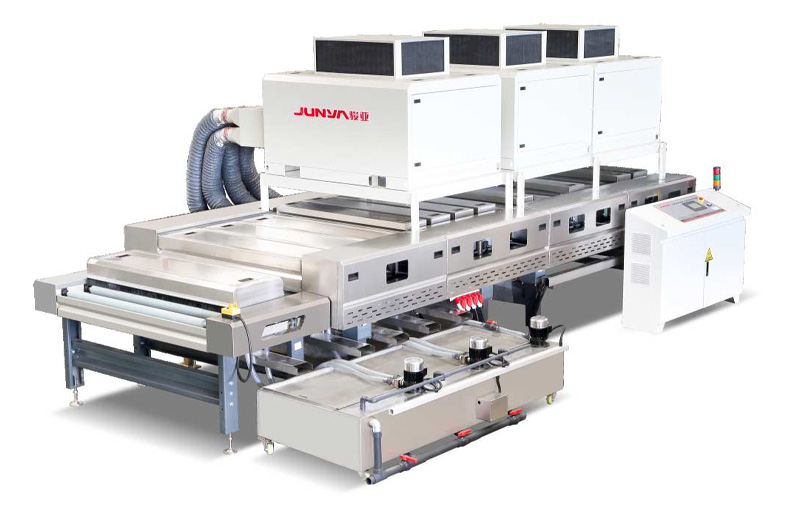Analysis of the development prospects of the glass washing machine industry
With the rapid advancement of urbanisation and the booming development of the construction industry, the demand for glass, as an important building material, is increasing. Accordingly, glass washing machine, as a kind of efficient and energy-saving cleaning equipment, plays an important role in guaranteeing the aesthetics of the building and maintaining the image of the city. In this paper, we will analyse the development prospects of the glass washing machine industry.

First of all, market demand is the fundamental driving force to promote the development of the industry. At present, with the increase of new buildings and the renovation and maintenance of old buildings, the demand for glass cleaning continues to grow. Especially in the field of commercial property, high-end residential areas and large-scale public facilities, glass cleaning standards and requirements are more stringent, which provides a broad market space for the glass washing machine industry. These areas of glass cleaning requirements are not only the cleanliness of the problem, but also involves a number of aspects such as safety, aesthetics and environmental protection. Therefore, the glass washing machine industry needs to continue to innovate and improve the level of technology to meet the needs of these areas.
Secondly, technological innovation is the key to enhance the competitiveness of the industry. In recent years, glass washing machines have made continuous breakthroughs at the technical level, from the initial manual operation to semi-automatic and fully automatic intelligence, with significant improvement in cleaning efficiency and effectiveness. In the future, with the application of Internet of Things, big data and other modern information technology, the intelligent level of glass washing machine will be further improved to achieve remote monitoring, fault warning, automatic adjustment and other functions to better meet market demand. The application of these technologies can not only improve the cleaning efficiency and effectiveness, but also reduce labour costs and management difficulties.
Again, the support of environmental policy for the development of the industry provides favourable conditions. In the face of increasingly severe environmental problems worldwide, governments have introduced relevant policies to encourage the development of green and low-carbon technologies. As one of the energy-saving and environmentally friendly equipment, the glass washing machine meets the national policy guidance of energy saving and emission reduction, and enjoys policy support, which is conducive to the healthy and sustainable development of the industry. This not only improves the awareness of corporate social responsibility, but also brings economic benefits and social reputation to the enterprise.
Finally, the competitive pattern of the industry is also an important factor affecting development. At present, there are many enterprises in the glass washing machine industry, and the competition is relatively fierce. However, at the same time, this also prompts enterprises to increase investment in research and development, and constantly introduce new products and services to improve the quality of products and services to meet the diverse needs of the market. It is expected that in the future, the industry will gradually develop in the direction of branding and scale, forming several leading enterprises that dominate the market. This will help improve the concentration and stability of the industry and promote the healthy development of the industry.
In summary, the glass washing machine industry is facing huge market demand and opportunities for technological innovation, while also needing to cope with fierce market competition and ever-changing environmental policy challenges. Overall, the industry has good prospects for development, but enterprises need to continuously improve their competitiveness to adapt to the rapidly changing market environment. Only companies that continue to innovate, improve efficiency, reduce costs, meet customer needs and comply with environmental regulations will be able to stand out in a highly competitive market.
